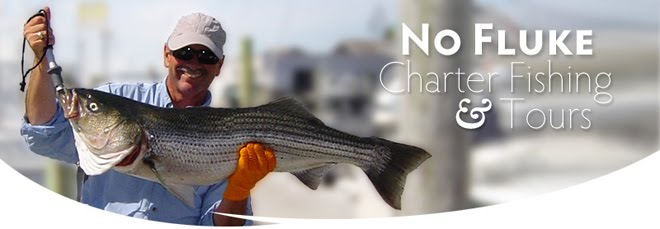 Captain Charlie Donilon of Snappa Charters, Point Judith, RI, has been taking customers shark diving in a cage (one shown in photo) since 1976, longer than anyone else in Rhode Island.
Captain Charlie Donilon of Snappa Charters, Point Judith, RI, has been taking customers shark diving in a cage (one shown in photo) since 1976, longer than anyone else in Rhode Island.
Playing tag with sharks
Ever since I visited Captain Charlie Donilon at his South County, RI home I felt I had to get this story out, his story, one that has been told by others in the past. He has been been televised on National Geographic Explorer, NESN and Chronicle. Feature articles have written about him in the Providence Journal, Wall St. Journal, Boston Globe, Yankee Magazine, Rodale’s Scuba Diving, RI Monthly, and On the Water to name a few. Every now and then you meet a great fisherman… a great charter captain… or a great person. Captain Charlie Donilon of Snappa Charters, Point Judith, RI is all three.
He runs the most diversified charter business in Rhode Island. He takes people on harbor and lighthouse tours, shark cage diving , bird watching, underwater photography charters, ash burials at sea, wreck diving, whale watching , fishing of all types and just about anything else you want him too. “That’s why they call it a charter service and not a fishing service. You have to be diversified to make the business work.” said Donilon.
He is an advocate and big supporter of sustainable fisheries. “One might think that I’m in the wrong business. I hate to kill fish.” He continued, “But some customers want to take the fish to eat and I totally understand this. Last year we had about 300 shark contacts and we tagged about 143 of them. I say “contact” because we did not kill one shark and this included nine mako sharks.”
Capt. Donilon said, “I can remember I had six guys on board one day. They were all excited about shark fishing. They all wanted to kill a shark.” But, one by one, Capt. Donilon talked them out of it. He convinced them that they should tag and release as it was a great contribution to science and the sharks.
Being an advocate for sustainable fisheries doesn’t mean he can’t find the fish. This winter I was struck by customer Adam Durant’s comments about cod fishing with Captain Donilon, “We had the pleasure of heading out with Capt. Charlie Donilon on Tuesday… Started on the East Grounds (off Block Island) and landed six keeper cod… another five black sea bass and a couple of good scup… all in all a great day of fishing with an outstanding Captain.”
I asked Capt. Donilon about one of his most interesting days on the water with sharks. He said, “One day we (he and his charter party) came across a 20 foot great white shark (approximately 4,000 pounds). That was in 1983, that year there were many great white sightings off Point Judith. It was July 21st and all on board wanted to kill the shark at first, then most everyone agreed that tagging it would be much better, all except for one guy who was furious with me because he wanted to take the shark and have its “jaws” as a trophy.”
Charlie has been fascinated by sharks for a long time, long before he had a charter business, long before he was the first one in the region (since 1976) that would take you shark diving in a cage. He would study them, read books, articles and scientific studies about them. He met Peter Benchley at a who’s book (and movie) Jaws, characterized sharks as many think of them today. Captain Donilon said, “Peter Benchley said that Jaws vilified sharks, made them out to be bad… almost evil. They are not villains. During our meeting Mr. Benchley said, ‘If I knew back then, what I know today about sharks’, he would have never portrayed them as he did in the movie.”
Donilon sees a fascination in the eyes of those that hire him. “There is something about sharks that attract people; it might be the excitement… the danger… perhaps the image of them as bad. Customers just want to get close to them, to reach out and touch them.”
Snappa Fishing & Diving Charters has been involved in the business of sport fishing for the past 40 years, their web address is http://www.snappacharters.com/ .
Chef Dean Scanlon and Capt. Dave Monti to speak about fluke at RISAA seminar Monday
Fluke (summer flounder) fishing tips and fluke cooking tips will be featured at the Monday, February 27, 7:00 p.m. Rhode Island Saltwater Anglers Association (RISAA) meeting this month. Capt. Dave Monti of No Fluke Fishing charters and noted local fishing columnist will share fluke fishing tips from expert guides, charter captains and anglers. Chef Dean Scanlon, owner of L’attitude Restaurant, Cranston, RI will share tips on how to care for your fluke from the moment you catch it so that it is a safe and delicious meal once you get it home. Dean is a chef and a fisherman, he and Maria Scanlon started their restaurant 11 years ago. RISAA members can bring a friend at no charge; non-members are asked to make a $10 donation. Seminar starts at 7:00 p.m. at the West Valley Inn, West Warwick, RI with optional dinner starting at 5:30 p.m. Visit http://www.risaa.org/ for details.








